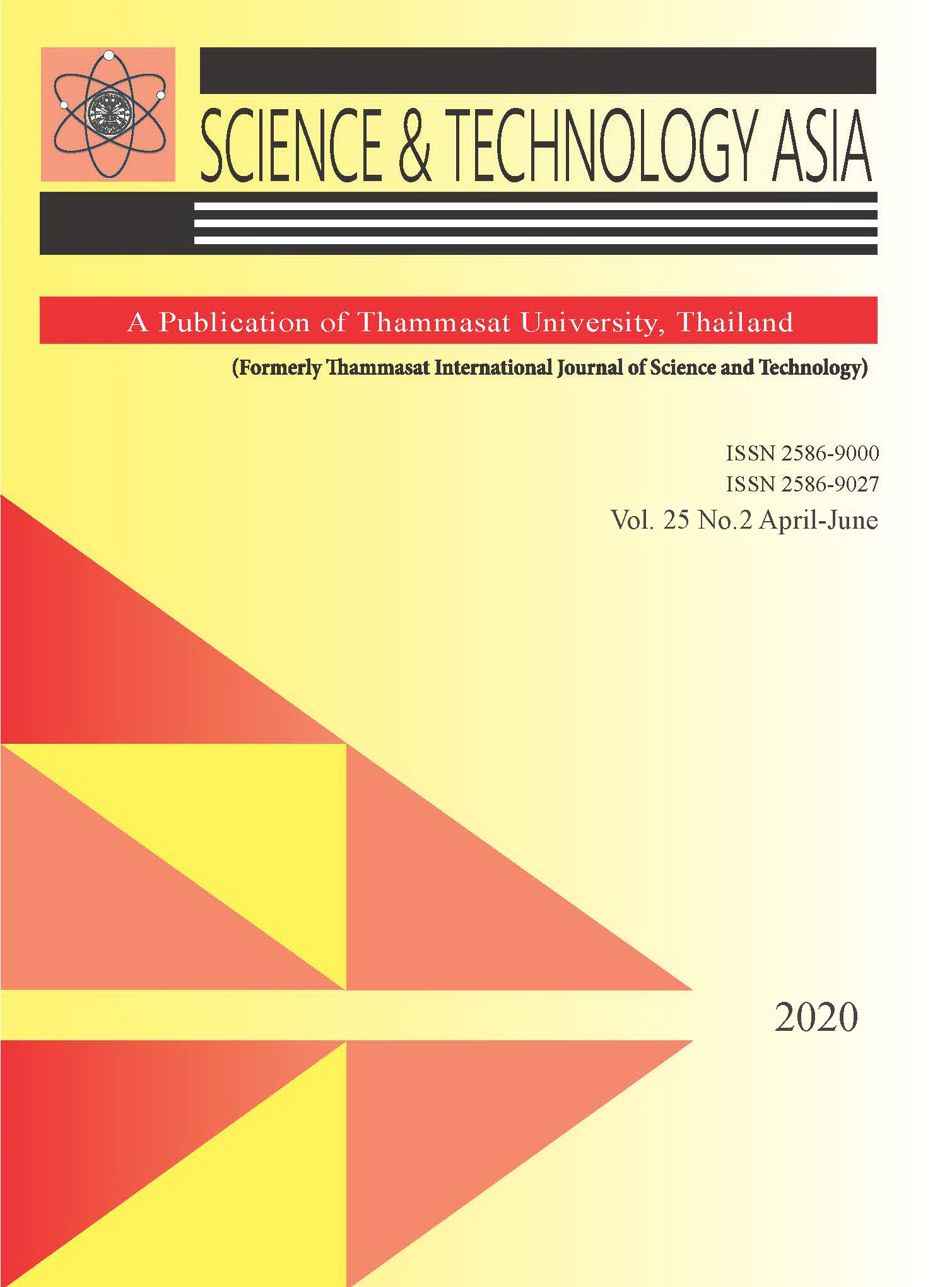Accelerated Stability Study on Anti-Allergic, Anti-inflammatory Activities and Phytochemical Contents of the Ethanolic Extract of Zingiber officinale Roscoe
Main Article Content
Abstract
Allergic rhinitis (AR) is a global health problem and herbs are one of the alternative treatments for AR. Ginger is widely used as a spice food. Many reports have revealed that ginger extract has potential anti-allergic and anti-inflammatory activities. However, there is no report on the stability of the anti-allergic and anti-inflammatory activities of ginger extract after storage. This study aimed to investigate the stability of ginger extract on the accelerated condition by determining anti-allergic and anti-inflammatory activities and measuring 6-gingerol and 6-shogaol. The ethanolic extract of ginger was kept under the accelerated condition for six months. The extracts at various storage times were investigated for antiallergic and anti-inflammatory activities by measuring the inhibition of β-hexosaminidase release from RBL-2H3 cells and nitric oxide production in RAW 264.7 cells, respectively. Levels of 6-gingerol and 6-shogaol were determined by HPLC. The results showed that under the accelerated storage condition, the anti-allergic activity of ethanolic ginger extract was stable until day 90; however, after day 90 the IC50 values were still less than 20 μg/ml. There was no significant difference in anti-inflammatory activity of all stored ginger extracts comparing to day 0. At the end of the stability storage, the level of 6-gingerol, one of major components, was reduced, but 6-shogaol level was increased. However, the anti-allergic and anti-inflammatory activities were maintained at acceptable levels. Therefore, ginger extract can be stored within 2 years at room temperature without the loss of both activities. This study provided the stability data for development of ginger extract to be a drug for AR treatment.


